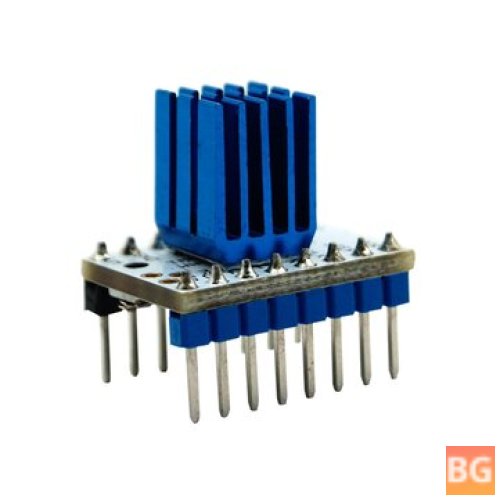The TMC2208 3D Printer Mute Driver is a highly efficient and flexible driver chip that delivers excellent microstepping performance.
It replaces the original TMC2100, resulting in lower heat and noise. Its flexible microPlyer interpolation unit enhances the stepper motor's performance providing a resolution of up to 256 microstep/step. The only potential drawback of this driver chip is that it does not support UART. Overall, it is a must-have for anyone seeking to reduce heat and noise in their 3D printing projects and enhance their 3D printing experience.
To begin our analysis let's take a closer look at the TMC2208 3D Printer Mute Driver.
This driver chip is a replacement for the original TMC2100 and is specifically designed for the 3D printing market. It offers a flexible microPlyer interpolation unit, providing up to 256 microstep/step resolution and lower heat. Let's see how this product performs in terms of its features and benefits.
One of the principal features of the TMC2208 driver chip is its built-in driver that delivers a power tube of up to 1.4A peak current and 2A voltage range making it highly efficient. Its 256 subdivision capability enables it to offer excellent microstepping performance, allowing for precise control over the stepper motor. The chip can replace the original TMC2100, resulting in lower heat and noise. The driver's flexible microPlyer interpolation unit is another notable feature that enhances the motor's performance, providing a resolution of up to 256 microstep/step.
The advantages of the TMC2208 driver chip include its ability to replace the TMC2100 which results in lower heat and noise. Additionally, the flexible microPlyer interpolation unit enhances the stepper motor's performance and provides a high resolution of up to 256 microstep/step. One potential drawback of this driver chip is that it does not support UART, which may be an issue for some users.
In the end the TMC2208 3D Printer Mute Driver is a highly efficient and flexible driver chip that delivers excellent microstepping performance. It is a must-have for anyone seeking to reduce heat and noise in their 3D printing projects. However, users who require UART support should look for alternative options. Overall, this driver chip is an excellent investment for anyone looking to enhance their 3D printing experience.
